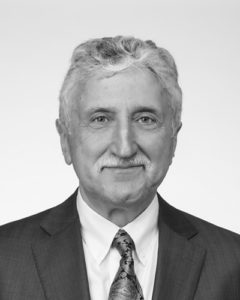 By: Jerome F. Weiss, IAM Distinguished Fellow
By: Jerome F. Weiss, IAM Distinguished Fellow
Email: mediator@mediationsolve.com
Posted: February 23, 2016
So much of our work as mediators is focused on listening. We go to school to learn how. We probe the psychology. We take advanced seminars in mindful listening and picking up cues and listening with our eyes and our instinct. Our weekend retreats tell us how we and disputants often stop listening because of chemical or electrical reactions in the miracle we call brain and body. We encourage each other to place ourselves in other people’s skins in order to understand their life journeys better. And too often we pay lip service to listening only to plow right back into our customary format, no matter how it might defeat “listening,” because we think we know better or because of old habits or markets demanding closure or agendas set by legal criteria and other people.
A recent case opened my eyes to the need for effective listening in a manner more profound than any other in my mediation experience. I was mediating what was basically an Americans with Disabilities Act (ADA) class case in the form of an injunctive action brought in federal court against a top tier teaching hospital on the East Coast. The core allegation was that the hospital was not providing adequate accommodation for hearing impaired patients in terms of the quality of interpreters and remote interpretation services. The lawyers were stoked with the usual arguments ranging from deliberate indifference on one side to “we are trying our best with a system that is unrivaled for an institution of our size and complexity” on the other…and everything imaginable in between.
I sensed that this dispute was “different” and I was concerned that the disputants were too eager to dive into the competitive struggle just as they had been doing in the courtroom, without listening. I knew that in order to achieve success, there needed to be a lot of time devoted to retraining people in active and focused listening. We worked with two world-class interpreters who provided some of the most grueling and constant effort I have ever witnessed. The work requires huge intellect, energy, focus and nuance to deal with all forms of non-verbal and transliterative process, technique and language. It is slowed down, but not slow. It is methodical. It is highly communicative and meaningful and requires respect and listening.
As it turned out, I didn’t need to do much work to focus people on listening. Rather, we were all forced by process and circumstance to LISTEN in a manner that we had never experienced before. In so doing we learned, without the usual language or words, about the lifetime of fear and anguish this named Plaintiff had lived. His life consisted of abundant unfairness and deprivation that too often left him the brunt of abuse as a youngster and without the calling of his aspiration as a young man to the law. I think everyone painted pictures in their own mind of his frustration at not being one of the very skilled lawyers in that room. He was now a feisty 84 year old, helped by a wonderfully intelligent wife who was experienced in sign languages and dialects of all forms. He had obviously seen a lot in his life and was weary from the freight of his impairment, though clearly willing to see this issue through so that finally in his life some people would truly need to listen to him and others who had struggled for so long to be heard.
We went slowly. Thoughtfully. We spent time like most of us usually do not, especially given the increasing demand in our society and profession for velocity in process and delivery of product. Ironically, unaware of his fear and accumulated anger, the Plaintiff didn’t see or appreciate his own diminished capacity to listen. He was conditioned by a lifetime of not being heard.
The process with the interpreters and a heightened awareness of the necessity of listening helped define my job as manager of the resolution. As we progressed we all learned that both sides and I needed to step up our listening game, which too often does not include the non-verbal cues and “emotional listening,” “conceptual listening” and “abstract listening” that is so elemental not only to the art of mediation but also for all people to feel that they are being treated fairly and with compassion and reciprocity. We spent nearly eight hours that day LISTENING, and we only scratched the surface. Of those eight hours, we spent nearly five in the two best joint sessions I have ever been in, with reflections all around from experienced hands that they had also never experienced anything quite like it. We spent another hour dining together and relating in the way that only human connectivity and intimacy can provide. We spent lots of time re-directing people around and away from the positional battles of the courtroom, where we usually listen only to try to win and to convince strangers…not each other; where essentially we do not listen.
Late in this wonderful and hugely privileged career of mine, my eyes as well as my ears and heart were opened to listening in a manner that was new and alive and deeply moving, as I took my first graduate hours in LISTENING.
© 2016 Jerome F. Weiss
